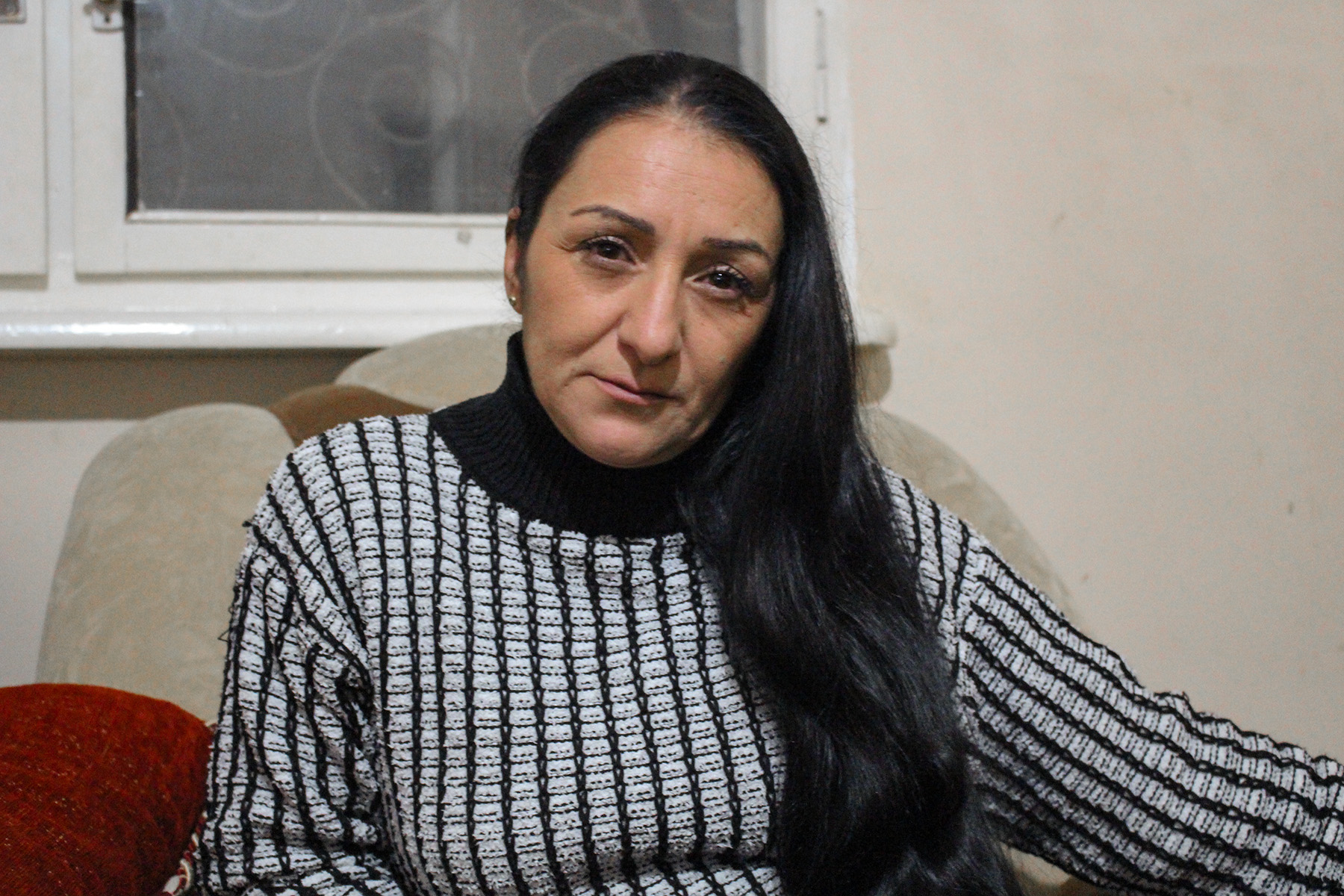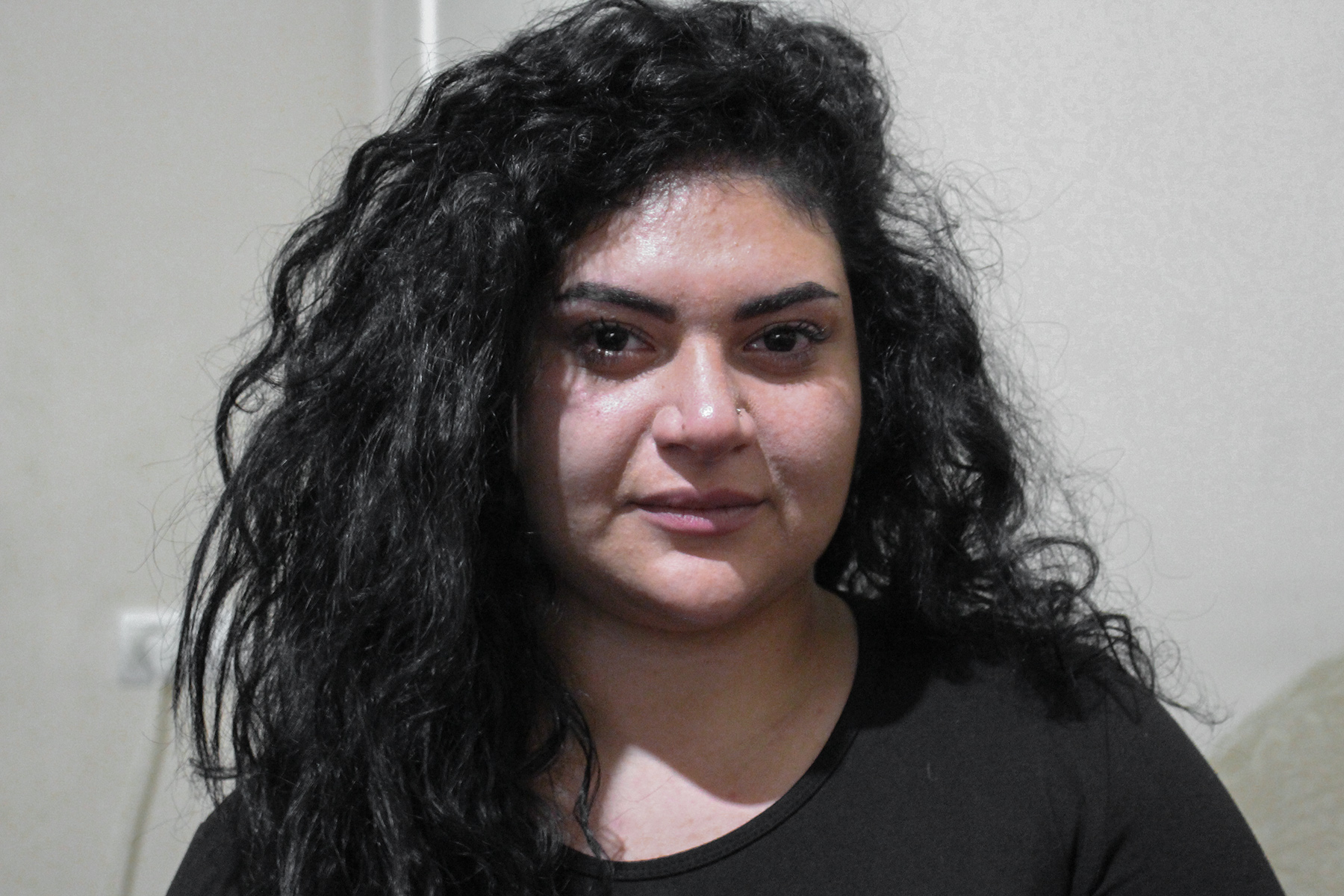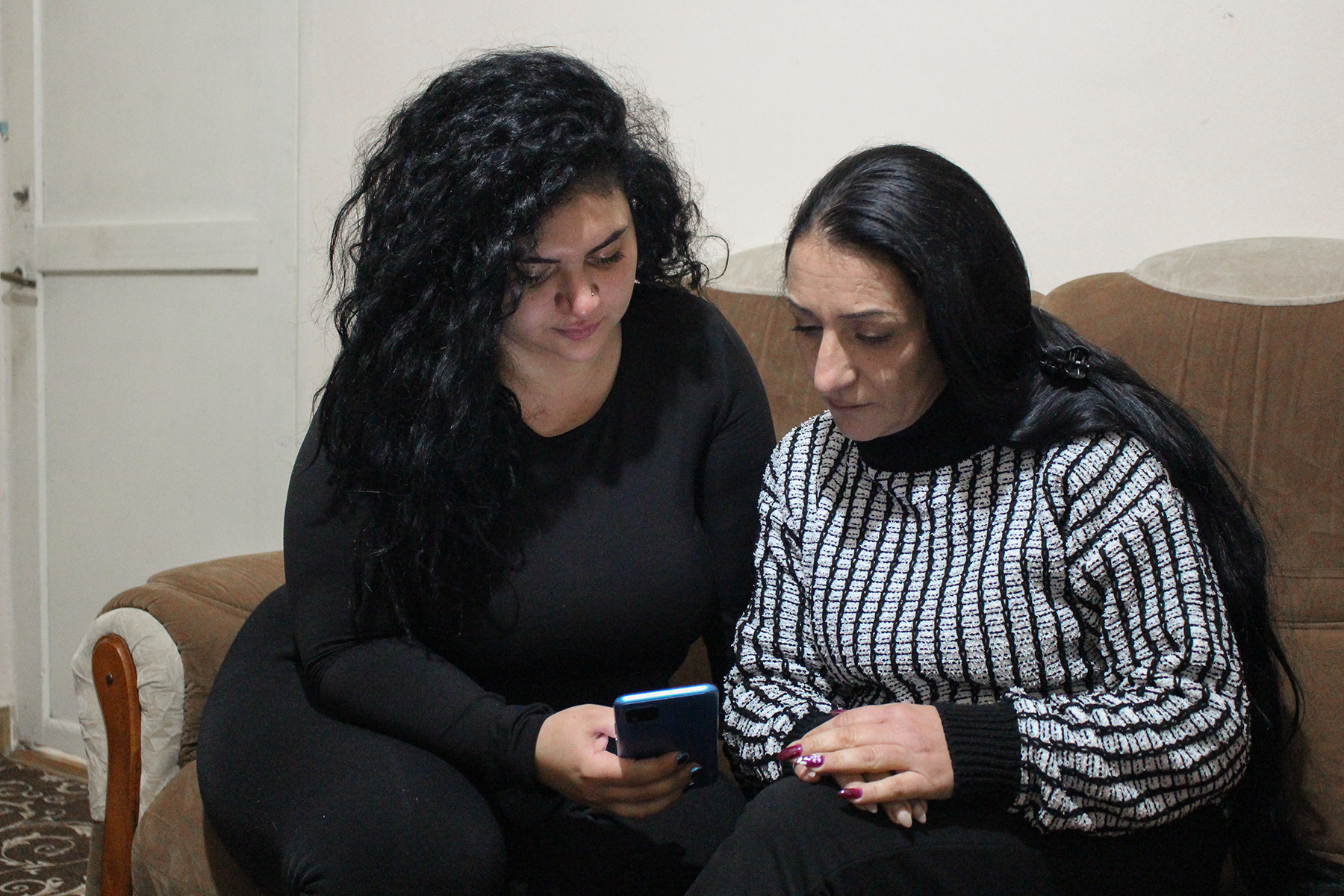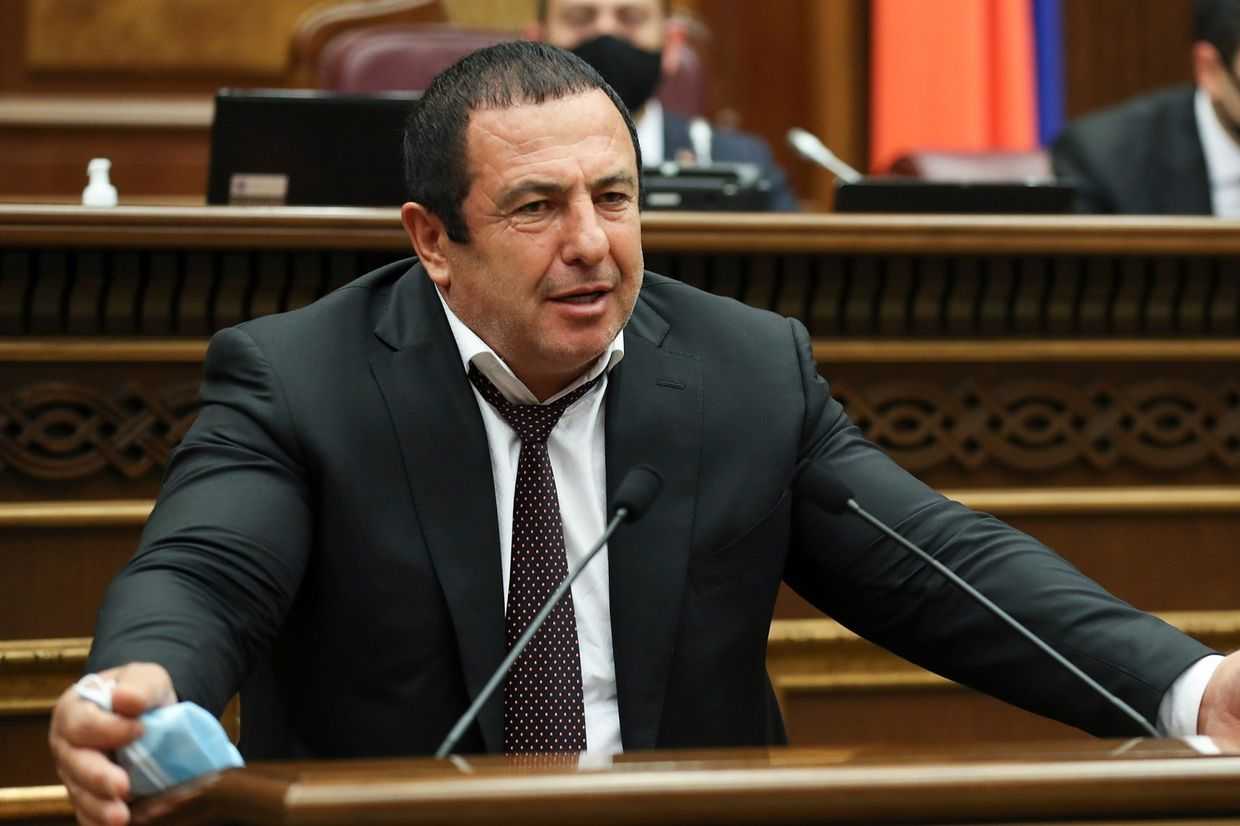
Maral Najaryan, a 50-year-old Lebanese-Armenian, moved to Armenia after the Beirut port blast in search of a safer and more peaceful life. The end of the Second Nagorno-Karabakh War proved to be a turning point for her — she and her fiance Vigen Yevljejyan were captured by Azerbaijani forces in Nagorno-Karabakh.
Though Maral regained her freedom, Vigen has yet to be released.
‘I had a beauty salon in Beirut. I was a manicurist and hairdresser. I worked with my daughter. Everything became complicated after the economic crisis in Lebanon. Everything was getting more expensive, which was a loss to the service sector.’
‘I kept thinking that we should move to Armenia. My sister Ani also shared my idea. In early August 2020, we bought plane tickets to Armenia. A few days later, on 4 August, we were in Beirut when the explosion occurred. The house shook, the floor was damaged: for a moment, we thought war had broken out. That moment reinforced the decision that we should go.
‘On 25 August, my sister and I were already in Armenia. We had been to Armenia before; it was not our first visit.’
‘We decided from the beginning that we would live in Nagorno-Karabakh. We were informed about a resettlement programme there. We stayed in Yerevan for a few days and on 16 September, my sister and I moved to Nagorno-Karabakh and settled in Berdzor [Lachin]. We planned to live there for a while, settle in, and then bring our children with us.’
‘We had been in Berdzor for only 11 days when the war broke out. We stayed there for a while, but my sister and I returned to Yerevan when the situation escalated. We didn’t take any personal belongings with us; we thought the fighting would end soon and that we would be able to return in a few days.’
‘When the war ended on 10 November, my fiancé Vigen and I left for Berdzor to collect our belongings. We had nothing in Yerevan; we were already renting at the time. First, we took some of my stuff, then Vigen said that we were going to Shushi to collect his belongings.’
‘When we reached the entrance to Shushi we were stopped by Azerbaijani soldiers. They approached us, took our phones and bags, and then they took us out of the car and examined us. I was trembling with fear — I didn’t even realise that I was a captive. At that moment, I thought I was going to die.’
‘They put us in their car, took us to their military base where they changed their car, and we continued on the way. I was not blindfolded; I could see everything. It was a bumpy and unfamiliar road. We went through the mountains and travelled for around five hours.’

‘Vigen and I were taken to different locations when we arrived. I was in a small room, and the toilet was in the room. The bed was attached to the wall, with leather on iron. I was told that I could lie down there and sleep. At that moment, I realised that I was a captive and that I was in Azerbaijan.’
‘At the time, I was not thinking about myself. I was thinking about my sister and my family. They had no news of me. I knew they would be worried, concerned. I did not have a phone; I did not know how to give them news about my situation.’
‘The following day, they changed my room. I was interrogated, then taken to a prison cell, where I stayed for three-and-a-half months. I was praying all the time. Мy soul was tormented.’


‘I was counting the days by making notes on the wall. On 12 February, representatives of the [International Committee of the] Red Cross visited me. That’s when I realised that I could be saved. Then I wrote a letter to my relatives informing them that I was alive.’
‘When I learned I would be released; I asked to be taken to Beirut because I missed my children and my old mother there. When they opened my door and told me that I was free, I felt how a bird in a cage would feel if it were released from its cage and was told to fly. I was back [in Beirut], but Vigen is still there.’
‘I returned to Armenia on 9 September. I love Armenia very much. When I first visited I was 14 years old, and I fell in love with the country. This is my home.’
‘I’m taking manicure classes now. I am training, and I will start working soon. My next goal is to buy a house, as I don’t have a house here. I received a piece of land as a gift; a fundraiser was organised to build a house for me. Today, we rent a home with my sister’s husband, my daughter, and her fiancé. I am optimistic. Everything will be fine. I’m waiting for Vigen. I believe he will come back.’
All place names and terminology used in this article are the words of the author alone, and may not necessarily reflect the views of OC Media’s editorial board.






